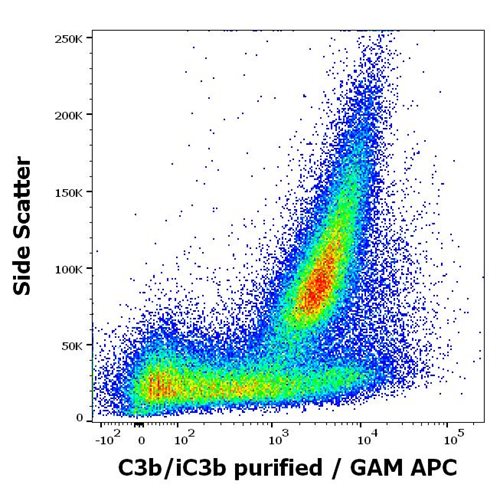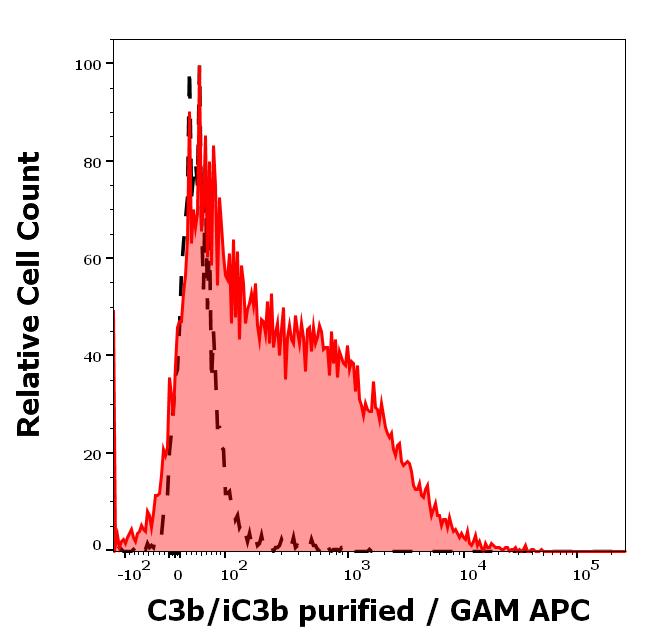Anti-Human C3b/iC3b Monoclonal Antibody (Clone: 3E7)

Figure 1: Flow cytometry surface staining pattern of human stimulated (PMA + Ionomycin) peripheral blood mononuclear cells stained using anti-human C3b/iC3b (3E7) purified antibody (concentration in sample 0.5 μg/ml) GAM APC.
Roll over image to zoom in
Shipping Info:
For estimated delivery dates, please contact us at [email protected]
| Format : | Purified |
| Amount : | 0.1 mg |
| Isotype : | Mouse IgG1 kappa |
| Purification : | Purified by sequential steps of physicochemical fractionation (differential precipitation and solid-phase chromatography methods). |
| Content : | 1mg/ml, Tris buffered saline (TBS), pH 8.0, 15 mM sodium azide |
| Storage condition : | Store at 2-8°C. Do not freeze. |
Complement component C3 plays a key role in the activation of complement system. In classical complement system pathway the activated C2 and C4 form classical C3-convertase (C4b2b) which cleaves C3 into C3a and C3b. In alternative complement system pathway C3 is cleaved by alternative C3-convertase (C3bBb), composed of C3b (which can be generated also by spontaneous hydrolysis of C3) and the activated form of factor B. C3b activates downstream cascade leading to formation of pores in the plasma membrane of attacked cell. C3b and its proteolytically inactive form iC3b also serve as important opsonins. C3b can generate C3f, as well as the iC3b can be further cleaved into C3c, C3d and C3g. Complement system is regulated by effective inactivation of free C3b by factor H and factor I. C3b attached to the surface of its target is protected from this inactivation. Complement system is also regulated by other proteins, e.g. CD35, CD46, CD55, or CD59. Undesired activation of complement cascade can lead to severe diseases such as PNH, rheumatoid arthritis, macular degeneration and other. Recently it has been demonstrated to take part in complications associated with Covid-19.
For Research Use Only. Not for use in diagnostic/therapeutics procedures.
|
There are currently no product reviews
|















.png)











